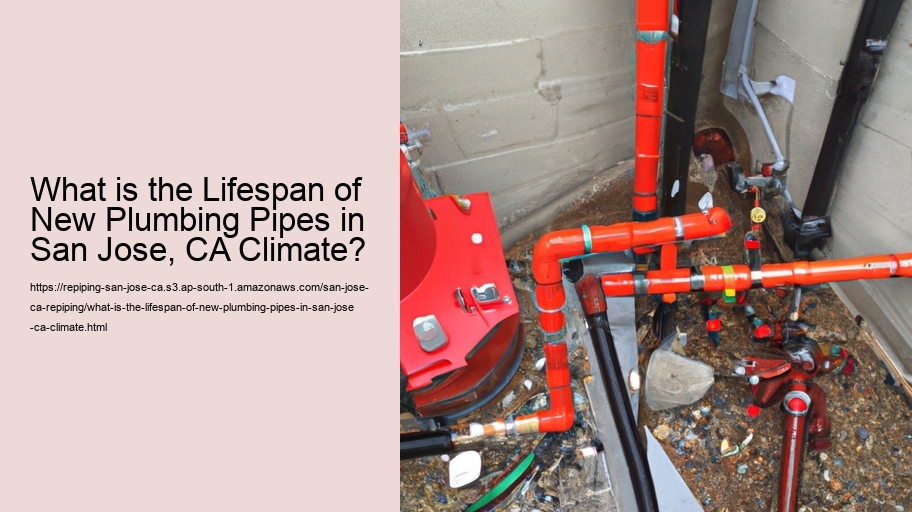The lifespan of plumbing pipes is a matter often overlooked by homeowners until they face the inevitable: leaks, bursts, or clogs. What is the Average Cost of Repiping a House in San City, CA? . The longevity of these essential components can be influenced by various factors such as material quality, installation precision, and environmental conditions. In San Jose, California, where the climate is generally mild with warm summers and cool winters without extreme temperature fluctuations or heavy snowfall, one might expect plumbing systems to fare relatively well compared to areas with harsher weather patterns.
In San Jose's temperate climate zone, typical pipe materials include copper, PVC (polyvinyl chloride), PEX (cross-linked polyethylene), and in older homes, galvanized steel. Each material has its expected lifespan in ideal conditions:
Copper pipes are renowned for their durability and can last anywhere from 50 to 70 years. They resist corrosion effectively and are impervious to UV light if exposed. However, the water's pH level can affect copper's longevity; overly acidic or alkaline water can lead to faster degradation.
PVC pipes have become increasingly popular due to their corrosion resistance and ease of installation. While PVC hasn't been used as long as copper or galvanized steel in residential plumbing so it doesn’t have as extensive a track record, estimates suggest that PVC pipes should last at least 50-70 years.
PEX tubing is a flexible option that has gained traction in recent years for its resistance to breakage caused by freezing — an admittedly rare concern in San Jose's climate — and its ease of installation. PEX is estimated to last between 40-50 years.
Galvanized steel pipes were common in homes built before the 1960s but have since fallen out of favor due to rust issues. If any remain in use within San Jose homes today, they are likely nearing the end of their functional life span which typically ranges from 20-50 years depending on water quality conditions.
Environmental factors unique to San Jose could also play a role in pipe longevity. For instance:
1) Water Quality: The mineral content in the local water supply can impact pipe deterioration rates through processes like scaling or mineral buildup.
2) Soil Composition: Certain soil types may cause more strain on underground piping systems due to corrosive substances present.
3) Earthquake Activity: While not directly related to weathering processes like wind or rain erosion experienced elsewhere, seismic activity inherent along California’s fault lines could potentially stress plumbing infrastructure over time.
Maintenance practices also substantially influence how long your home's plumbing will last regardless of location or climate:
Regular inspections for leaks and damage can catch problems early before they escalate into major repairs.
Monitoring household habits such as not flushing inappropriate items down drains helps prevent blockages.
Installing water softeners if hard water is present reduces sediment accumulation inside pipes which extends their usable life span.
Homeowners looking forward into future decades need also consider emerging technologies and updated building codes that may call for repiping earlier than physical wear-and-tear would necessitate — ensuring modern efficiency standards are met alongside considerations toward potential resale value down the line.
To sum up, while average lifespans provide general guidelines under ideal circumstances — half a century being quite achievable across most piping materials — homeowners must remain proactive about maintenance while remaining aware of both external environmental impacts specific to San Jose’s climate as well internal household dynamics influencing overall system health within their control so they may enjoy uninterrupted service from their domestic plumbing infrastructure throughout many seasons ahead.
